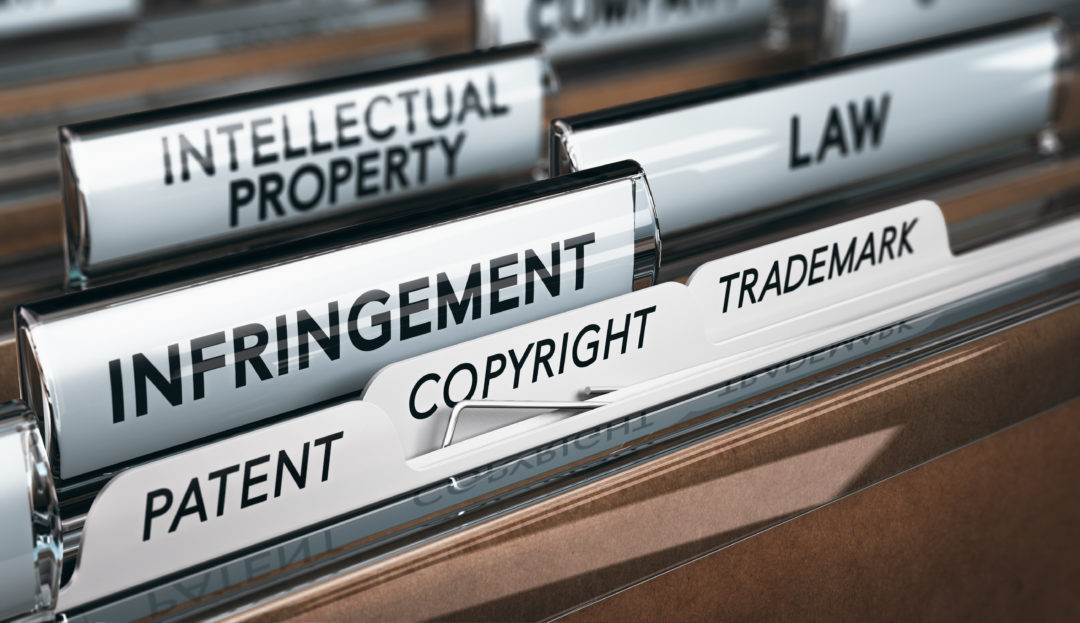The internet is growing and with it are websites and apps that infringe intellectual property.
Intellectual property or IP is defined as an intangible property that is the result of creativity.
In this context, there has been a rise of online sites, apps and platforms that are offering illegal or unauthorised streams of sports, of music, of films, TV shows, which make money off those streams through digital advertising.
This is damaging the economy — by 2022, $4.2 trillion is at risk, according to Frontier Economics — and it’s damaging the rights and reputations of those who own that content.
An intelligent approach to AI and intellectual property
Intellectual property protection and brand security
There is an interesting intersection between intellectual property protection and brand safety and security.
“Many brands’ advertising is being misplaced through digital advertising platforms, including on high-risk sites,” explains Peter Szyszko, founder and CEO at White Bullet — the intellectual property and data analytics company offering risk analysis and brand safety solutions.
These “high-risk sites” are infringing IP. And, many of them are also loaded up with malware, “because they’re trying to make as much money as possible,” continues Szyszko.
“Any consumers going to these sites will often have malware downloaded to their system and/or may interact with advertising on those sites which is actually fraudulent and actually loaded with malware.”
There is clearly an issue here for brand reputation and safety because the advertising is being misplaced. There’s also an issue of consumer safety because the advertising that is being placed on these sites is often “fraudulent and loaded with malware”, and then there’s the issue of the actual IP infringement in the first place.
Tech Nation’s cyber security cohort: White Bullet company profile
An extensive problem
There are billions of web pages that are created monthly with infringing content and the churn rate of these sites and apps is increasing — Szyszko estimates that 80% of them change within a week. It’s constantly shifting landscape.
In terms of stopping the advertising going to these sites, taking the money away and finding these new sites or variations of them as they appear is a dynamic challenge.
AI can be used to track that and identify them in real time.
“About 97% of the top IP infringing sites have some form of malware on them” — Szyszko
AI: mitigating the threat
AI and machine learning solutions looking to mitigate the threat need to integrate themselves inside digital advertising platforms that are placing these ads on high risk sites.
These tools are using hundreds of different data points to be able to identify whether there’s a risk of IP infringement before the ad is placed.
“That’s one way in which our AI is working, it’s across billions and billions of ad impressions daily and it’s giving the score to say is this safe or is this not safe before an ad is placed there,” says Szyszko.
AI in cyber security: predicting and quantifying the threat
IP and cyber security
In terms of the cyber security angle, protecting intellectual property is quite a niche space, because this is not about protecting somebody’s system or the integrity of an individual company’s operating platform.
“We’re talking about the integrity of the internet itself,” exclaims Szyszko. And, at the same time, create a more transparent advertising landscape, because advertising is funding these illegal platforms. It’s also about protecting the integrity of the consumer, who deserve to digest content in places where they can’t get harmed.
ISO 27001: the cyber security standard that organisations should strive for across the supply chain
The integrity of the internet
As the inventor of the internet, Tim Berners-Lee, said at Oktane19: “It seemed like a good idea at the time,” when referring to his creation.
The integrity of web is certainly in question, with fake news, extremist content and illegal streaming services becoming more and more commonplace.
Nowadays, if someone wants to make money on the internet, they can set up a website and get advertising revenue — it’s all some care about and it leads to the popular, rather inaccurate content. “All they need is lots and lots of eyeballs,” confirms Szyszko. And what’s the best way to get eyeballs? Push people to their website via social media or pop up ads with absurd content or offers that will get more clicks than a typical story.
The internet is innocent, it’s humans who have corrupted it.
30 years on and the internet is in crisis
The problem is growing, but there is a solution
“Mobile piracy, huge bandwidth and the fact that social media is promoting this dynamic infringement, means the problem of intellectual property infringement is going to grow,” explains Szyszko. The rate at which apps and websites can be created has contributed to this.
“The best way to solve it is to make it financially non-viable for these people, which is what we are doing by taking the advertising off.”
White Bullet is part of Tech Nation Cyber — the UK’s first national scaleup programme for the cyber security sector. It is aimed at ambitious tech companies ready for growth.







